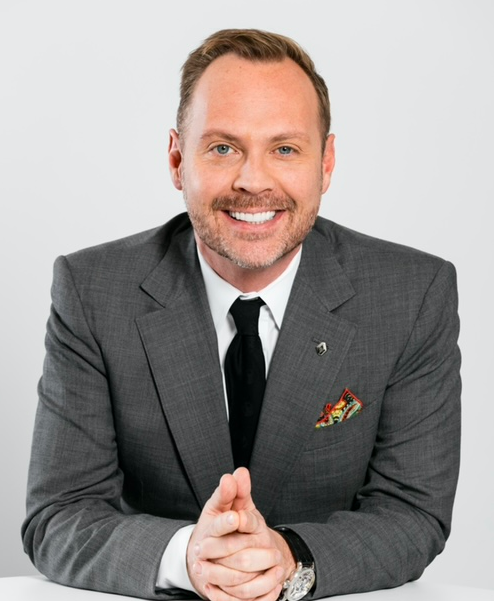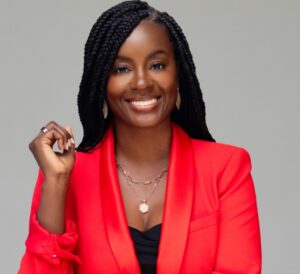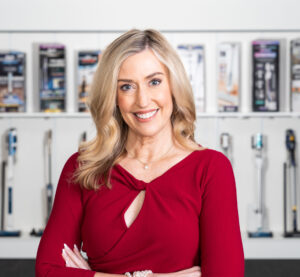How I got here: PMI’s Travis Parman on the key to excellence in storytelling
Travis Parman shares why Dolly Parton is the inspiration for his professional motto.

Travis Parman, vice president, chief communications officer at Philip Morris International (PMI), plays a key role in role in crafting a unified narrative that resonates across the organization. He’s led major brand communications while counseling C-Suite executives and managing corporate challenges.
Since joining PMI in Nov. 2023, Parman has been involved in PMI’s LGBTQ+ and Allies employee resource group, STRIPES GLOBAL, that focuses on creating an environment where all members of the community feel safe and comfortable to bring their true selves to work.
The ERG first launched in Lausanne, Switzerland, at PMI’s operational center and continues to grow with regional chapters, Parman said. “I’ve had more allies in this organization and more members of the community than I think in any other workplace that I’ve been in, which is a refreshing change.”
“(I’ve been) hearing from folks around the world that have started chapters and what their experience has been,” the CCO said. “It’s encouraging that the company supports that in every region of the world and that it’s making a difference.” One of the goals for PMI is to get a 100 on the Human Rights Campaign’s Healthcare Equality Index. PMI currently ranks at 70.
In his free time, Parman enjoys cooking with his husband, a Navy surgeon he met in Japan during his time at Nissan. They also spoil their rescue dog, Stevie Nicks.
The moment I’m proudest of in my entire career is when I: I reached a point in my career where I could give back. Building a network of folks you genuinely enjoy working with and having the opportunity to collaborate with them again is incredibly rewarding. They might seek mentoring, support, or value your opinion. Getting to that point, I had a personal pride moment because I established a rapport where I respect you and you respect me and we have a great relationship, whether at the peer level or reporting structure.
The thing I’m most excited about for the future of my profession is: PR practitioners becoming broader counselors for the business. I’m seeing a lot of PR practitioners being tasked with broader responsibility for general management. I think it makes a lot of sense because outside of the HR function, PR probably works more cross functionally than any other group. They really have to understand the business from top to bottom and all the elements that impact it, so they are in a unique position to counsel the CEO and other senior leadership and really forge consensus on important issues.
A tool or a piece of software I cannot live without is: I rely on my voice assistant a lot because as those get fused with more AI, the responses that they can give are increasingly complex and better.
The most underrated skill in my profession is: Folks are losing the ability to write in a succinct and compelling way. I ask for writing that’s memorable and repeatable. I’ve had to ask several times for folks not to hand me something that sounds like it was written by AI. If you have leveraged AI to support your writing and that’s more efficient for you, great. But when it comes to me, please don’t let it sound like it’s AI-generated.
The key to excellence in storytelling is: Understanding the interest of your audience. I’ve seen so many folks who have really interesting ideas that they’re most interested in but they overlook framing these ideas in a context that highlights their relevance and importance to others. Make them excited and happy about it too, and frame your story in a way that achieves that.
My professional motto/mantra is: What would Dolly (Parton) do? For me, what makes Dolly so successful is her humility. It’s always an issue of hubris and presumptions that tend to get people in trouble. Introducing humility, with a touch of humor for relatability, I believe, is key in many situations.
Piece of advice you would give to someone in their career: Be intellectually curious and don’t put anyone on a pedestal. I think early on, I would put more of the senior executives on pedestals. People appreciate your expressing interest in them and they really like when you demonstrate intellectual curiosity about your profession and about the business. Don’t be afraid early on to make those connections and at the same time, don’t rely on them so that all you’re doing for your career trajectory is putting together a network of top professionals, thinking that’s going to get you where you need to go. You have to do the peer network development at the same time.
Isis Simpson-Mersha is a conference producer/ reporter for Ragan. Follow her on LinkedIn.







